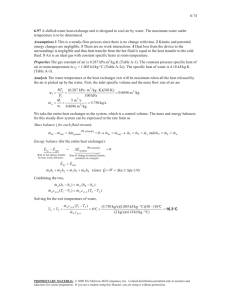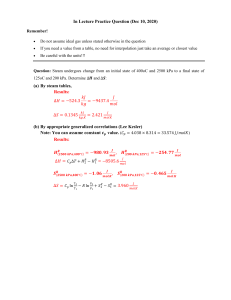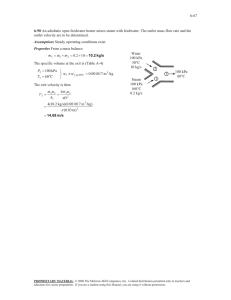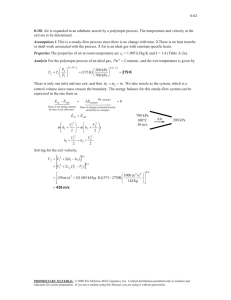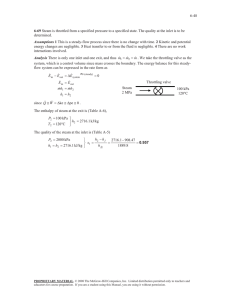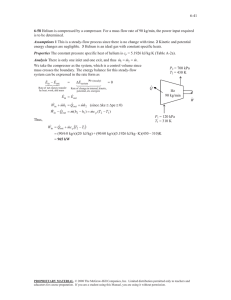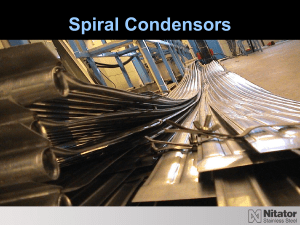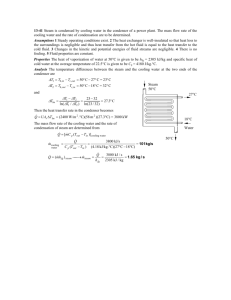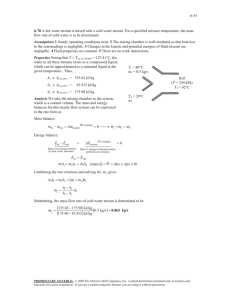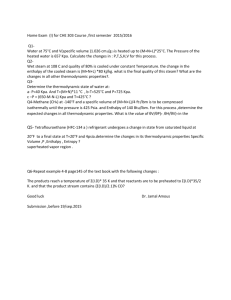6-61 qC, the minimum mass flow rate of the cooling water... cooling water is not to exceed 10
advertisement
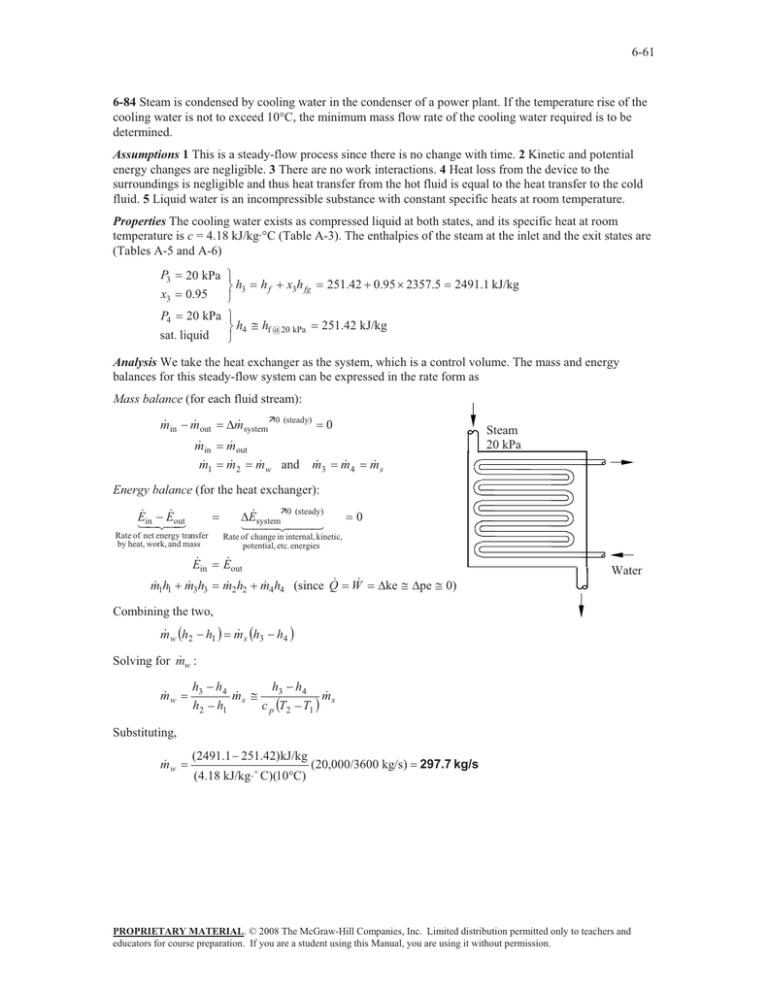
6-61 6-84 Steam is condensed by cooling water in the condenser of a power plant. If the temperature rise of the cooling water is not to exceed 10qC, the minimum mass flow rate of the cooling water required is to be determined. Assumptions 1 This is a steady-flow process since there is no change with time. 2 Kinetic and potential energy changes are negligible. 3 There are no work interactions. 4 Heat loss from the device to the surroundings is negligible and thus heat transfer from the hot fluid is equal to the heat transfer to the cold fluid. 5 Liquid water is an incompressible substance with constant specific heats at room temperature. Properties The cooling water exists as compressed liquid at both states, and its specific heat at room temperature is c = 4.18 kJ/kg·°C (Table A-3). The enthalpies of the steam at the inlet and the exit states are (Tables A-5 and A-6) P3 x3 20 kPa ½ ¾ h3 0.95 ¿ h f x3h fg 251.42 0.95 u 2357.5 P4 20 kPa ½ ¾ h4 # hf @ 20 kPa sat. liquid ¿ 2491.1 kJ/kg 251.42 kJ/kg Analysis We take the heat exchanger as the system, which is a control volume. The mass and energy balances for this steady-flow system can be expressed in the rate form as Mass balance (for each fluid stream): m in m out m in m 1 'm system Ê0 (steady) m out m 2 m w and 0 m 3 Steam 20 kPa m 4 m s Energy balance (for the heat exchanger): E E out in Rate of net energy transfer by heat, work, and mass E in m 1h1 m 3h3 'E systemÊ0 (steady) 0 Rate of change in internal, kinetic, potential, etc. energies E out m 2 h2 m 4 h4 (since Q W Water 'ke # 'pe # 0) Combining the two, m w h2 h1 m s h3 h4 w : Solving for m m w h3 h 4 h3 h4 m s # m s h2 h1 c p T2 T1 Substituting, m w (2491.1 251.42)kJ/kg (4.18 kJ/kg $ C)(10qC) (20,000/3600 kg/s) 297.7 kg/s PROPRIETARY MATERIAL. © 2008 The McGraw-Hill Companies, Inc. Limited distribution permitted only to teachers and educators for course preparation. If you are a student using this Manual, you are using it without permission.
